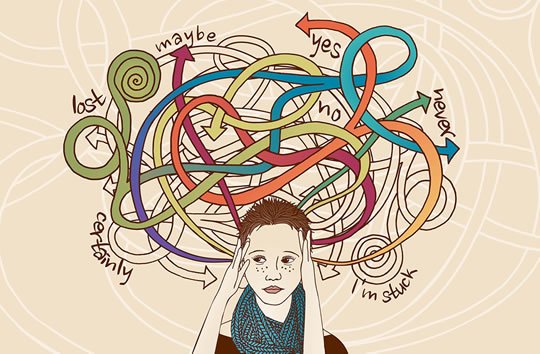Understanding Obsessive-Compulsive Anxiety Disorder
Anxiety disorder covers different types of unconventional phobias, pathological anxieties, and fears. Anxiety, according to medical terminology, is the emotional state or condition that an individual regarded as unpleasant. The cause or reason of unpleasantness is not, however, readily identified or defined by medical experts. Often used interchangeably with fear, anxiety conditions require accurate diagnosis so that better prognosis and effective anxiety treatment are provided.
One of the most common types of anxiety condition is the Obsessive-Compulsive Disorder (OCD). This type of anxiety disorder is defined through a person’s extreme compulsions and obsessions. This condition is often linked to the phrase “obsessive-compulsive” that basically refers to a person who is either too absorbed or meticulous.
Defining obsessions and compulsions
A person is diagnosed to have an obsessive-compulsive disorder if he or she either has compulsions or obsessions or both. Obsessions are recurring or persistent impulses and thoughts that are regarded by an individual as inappropriate, disturbing, and intrusive, thus, resulting in distress and anxiety. As these impulses and thoughts are not just necessarily concerns about personal matters or affairs, an individual suffering from OCD tries to disregard or to hide such concerns by means of neutralizing them with other actions or thoughts.
On the other hand, compulsions are characterized as interminable behaviors or thoughts that an individual performs as a response to his or her obsessive actions. A person suffering from obsessive-compulsive disorder is aware that his or her compulsions and obsessions are somewhat exaggerated and irrational. Apart from being time-consuming, an individual’s obsessions and compulsions are known to cause distress or impairment to one’s occupational and social functioning.
Symptoms of obsessive-compulsive disorder
The obsessive-compulsive disorder is distinguishable in a number of ways. Below are some of the notable symptoms of this type of anxiety disorder:
The obsessive-compulsive disorder is distinguishable in a number of ways. Below are some of the notable symptoms of this type of anxiety disorder:
- Habitual canceling or blocking out negative thoughts and concerns with positive or good thought. Some of the best examples of bad or negative thoughts are:
- Chronic worries on particular actions and events like eating or leaving home without proper items.
- Inappropriate sexual obsessions or thoughts.
- Thoughts violent in nature.
- Religious thoughts
- Obsessed with bodily functions Sensorimotor Obsessions: A less well-known type of OCD aka as “Health Anxiety”
- Habitual aligning or fixing of things or objects at their proper or designated places.
- Extreme fear of contamination. A person diagnosed with OCD is constantly worried about being contaminated with human or animal body secretions like sweat, vomit, saliva, mucus, as well as body excretions such as feces and urine.
- Habitual clearing of throat.
- Habitual hand washing.
Treatments for obsessive-compulsive disorder
Recent community studies show that many OCD sufferers fail to seek clinical help due to stigma or shame of having the said type of anxiety disorder. Another noted reason for unaccounted OCD condition is that some people are not aware that they actually have an obsessive-compulsive disorder. Generally, OCD is treated with three kinds of anxiety treatment: Cognitive therapy, behavioral therapy, as well as medications.
As for the cognitive and behavioral therapies, one of the best treatments recommended to OCD sufferers is the exposure and response prevention. This treatment involves the process of tolerating anxieties that form when one does not perform specific habitual actions or rituals. Meanwhile, doctors and specialists often recommend selective reuptake inhibitor medications like fluvoxamine, sertraline, paroxetine, and fluoxetine to individuals suffering from OCD.

